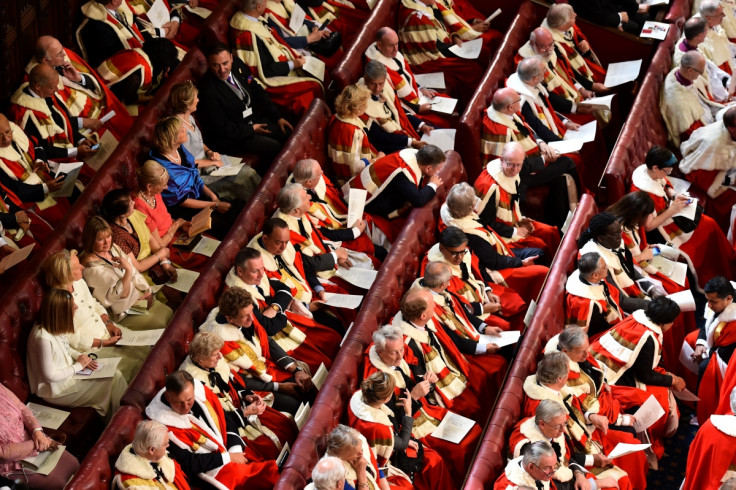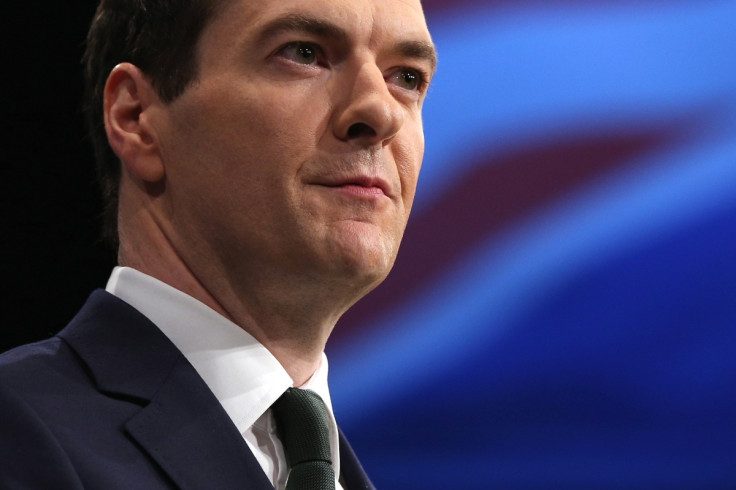Liberal Democrats are right to use the Lords even if we ultimately want to burn it down

Crisis! Crisis! They cried. Politics is in turmoil. Our parliament is being torn asunder. Our very democracy is crumbling around our ears.
I made the mistake of scanning Twitter on Monday (26 October) evening during a TV ad break, only to be greeted by the sort of breathless hyperbole that only the online Westminster echo chamber can muster. I happened to be watching The Walking Dead at the time, but a brief scan of my timeline suggested I might be missing an all too real zombie apocalypse unfolding before me. The unelected Lords and Ladies had sprung back into life and were threatening to eat the government's brain – or George Osborne, as his colleagues know him.
In short, the Government proposed something and the Opposition opposed it – and the Opposition won. Is it really that scandalous?
One of the advantages of being a former special adviser, as opposed to a current one, is that I am no longer professionally obliged to follow every twist and turn of the Westminster soap opera. As such, I was only vaguely aware that a showdown vote on George Osborne's tax credit changes was in the offing and had totally missed that it had taken place earlier that evening. But, intrigued by the hysteria, I trawled back through my timeline to try and figure out exactly what had happened.
It turns out that it was this: Labour and Liberal Democrat peers had voted down an attempt by the Conservatives to push through a statutory instrument – a technical piece of legislation that doesn't require a full-blown bill – to enact George Osborne's proposed tax credit cuts. An earlier attempt by Lib Dem peers to kill the proposals entirely through what is rather melodramatically called a "fatal motion" – keep up at the back, democracy watchers – had failed because only the Lib Dems voted for it, but two other Labour motions were approved, essentially giving the chancellor a slap on the wrist and sending him back to the drawing board.
In short, the government proposed something and the opposition opposed it – and the opposition won. Admittedly, that's poor form for a government, but is it really that scandalous?
So far, I had failed to grasp exactly what the emergency was. But the ad break was over and Andrew Lincoln was being chased by a herd of zombies, so my attention wandered back to the telly.
The following morning I woke to find the hysteria had not passed. The papers were littered with the red-faced chuntering of Conservatives and commentators declaring a crisis at the very heart of our democracy. The news channels were broadcasting an endless procession of pasty men in grey suits talking so breathlessly I feared they might keel over. Clearly, this was the worst constitutional crisis since Jeremy Corbyn forgot the words to God Save the Queen.
Playing devil's advocate for a moment – as opposed to zombie's advocate, I suppose – is it possible that I was being too flippant and that there was some substance to these claims of constitutional impropriety?

The Conservatives' say that they – an elected government with a majority of MPs – have been thwarted in exercising the democratic mandate provided to them by the great British people by an unelected chamber. What's more, a number of those filling the airwaves were claiming that these unelected peers had voted against a "money bill", meaning a financial measure which convention dictated they are duty bound to vote through. By rejecting it they were telling the government they could not proceed with a cost-saving measure that they had been elected to implement.
In short, the House of Lords had over-reached and was undermining the democratic will of the people. I can see how that might constitute a crisis.
What's more, there was a particularly venomous level of bile reserved for the Liberal Democrats, who were accused of crass hypocrisy for being a party committed to democratising the Lords yet willing to use their own unelected peers to undermine an elected government. The Tories responded to this apparently awful behaviour by threatening the Lords with reform, although they have been pretty vague about what sort of reform they are willing to bring in.
However, there are several problems with all this.
Firstly, this was not, in fact, a money bill. It was a statutory instrument. The difference might be technical but it is a real one. The Lords reject statutory instruments all the time and the world keeps turning. There was no breach of precedent.
Secondly, and far more importantly, the government has no democratic mandate for slashing tax credits. Yes, it won a majority of MPs at the election, but it won just 24% of the eligible vote and only did so by explicitly ruling out the tax credit cuts they were trying to implement.
It made that commitment because it was easier than justifying the snatching of more than a thousand pounds a year from around three million of the poorest working families in the country.
So, you could quite legitimately argue that the Lords were actually helping the Tories to meet their democratic mandate.
Thirdly, damn right the Lib Dems should make full use of the House of Lords. They are the ones who tried to overhaul it in the last parliament only to be beaten into submission by Tory belligerence and Labour indifference. They lost that battle, so they have to operate within the system that everyone else does. Don't hate the player, hate the game.
So let's all calm down a bit here. There is no crisis. In fact, there is nothing the least bit untoward happening.
The problem with the House of Lords is not what it did this week, but that it exists at all. If all this noise and fury leads to its reform, brilliant. The House of Lords is so out-of-date it seemed out-of-date when Queen Victoria was on the throne. Sack them all. Burn it down. The Lib Dems will dance in its ashes.
We desperately need to update our parliament, but not because it defended the poor from Osborne's tax credit cuts. That was fine.
Phil Reilly is a former speech-writer for Nick Clegg and Lib Dem head of media.
© Copyright IBTimes 2025. All rights reserved.






















